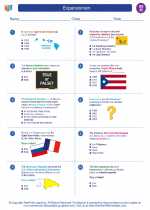Assassination of Archduke Franz Ferdinand
The assassination of Archduke Franz Ferdinand of Austria, heir presumptive to the Austro-Hungarian throne, and his wife, Sophie, Duchess of Hohenberg, occurred on June 28, 1914, in Sarajevo, Bosnia. The assassinations were carried out by Gavrilo Princip, a Bosnian Serb member of the nationalist group the Black Hand. The event is widely considered the spark that ignited World War I, leading to the outbreak of the most devastating and widespread conflict the world had seen up to that point.
Causes of the Assassination
The assassination was the result of a complex web of political and social tensions in Europe at the time. The Austro-Hungarian Empire's annexation of Bosnia and Herzegovina in 1908 had angered many South Slav nationalists, who sought independence from Austro-Hungarian rule. The Black Hand, a secret nationalist organization, sought to unite South Slavs and create a greater Serbia, free from Austro-Hungarian and Ottoman rule.
Immediate Impact
The assassination directly led to a series of diplomatic and military actions known as the July Crisis, ultimately leading to the outbreak of World War I. Austria-Hungary, with the backing of Germany, issued an ultimatum to Serbia, which, when not fully accepted, led to the declaration of war. The complex system of alliances in Europe then brought other nations into the conflict, spiraling into a global war.
Study Guide - Key Points to Remember
- Who was Archduke Franz Ferdinand and why was he assassinated?
- What was the role of Gavrilo Princip in the assassination?
- How did the assassination contribute to the outbreak of World War I?
- What were the underlying political and social tensions in Europe that led to the assassination?
- What was the impact of the assassination on the July Crisis and the subsequent declaration of war?
Understanding the assassination of Archduke Franz Ferdinand is crucial for grasping the complex factors that led to World War I. It serves as a key event in the study of modern European history and the dynamics of international relations.
[Assassination Of Archduke Franz Ferdinand] Related Worksheets and Study Guides:
.◂Social Studies Worksheets and Study Guides Eighth Grade. Expansionism

 Worksheet/Answer key
Worksheet/Answer key
 Worksheet/Answer key
Worksheet/Answer key
 Worksheet/Answer key
Worksheet/Answer key
 Worksheet/Answer key
Worksheet/Answer key
